Creating healthy habits for kids is a great way to start the new school year!
It’s easy to fall into bad habits, or to create family goals only to slip a few weeks into them. 🤦♀️
Don’t miss easy opportunities to get your kids into healthy habits that will stick with them all year!
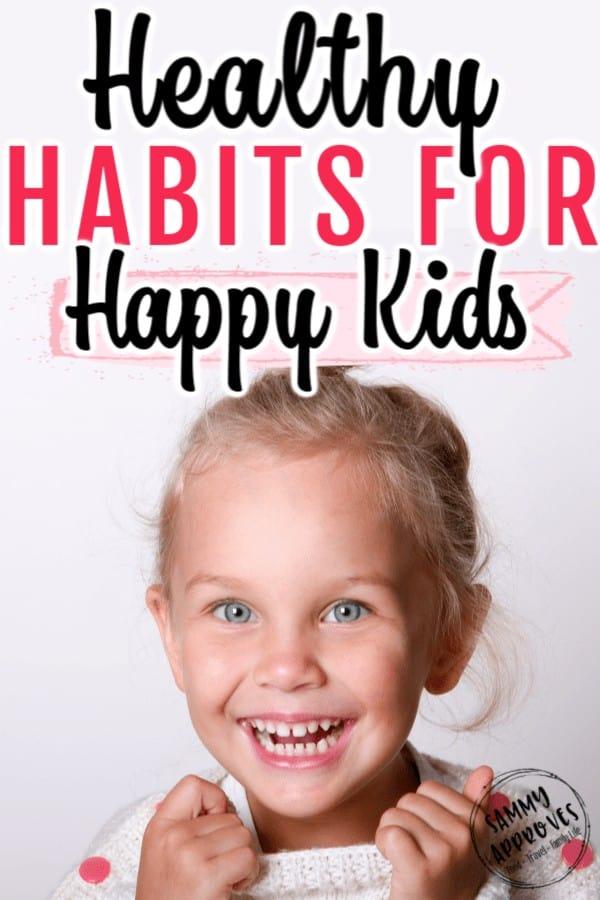
What are the 5 healthy habits?
The CDC identifies these 5 areas that effect our well being:
- Physical well-being 💪- Are your kids needs being met physically? Are they getting enough activity?
- Economic well-being 🏡 – For kids who don’t earn money this equates to feeling safe and secure in their home environment.
- Social well-being 👧 – Are your kids needs being met socially? How do they interact with others?
- Emotional well-being 😢- How do your kids deal with emotions? Do they have an emotional outlet?
- Psychological well-being 😊- Are your kids happy? Do they have a positive attitude.
Healthy Habits for Toddlers
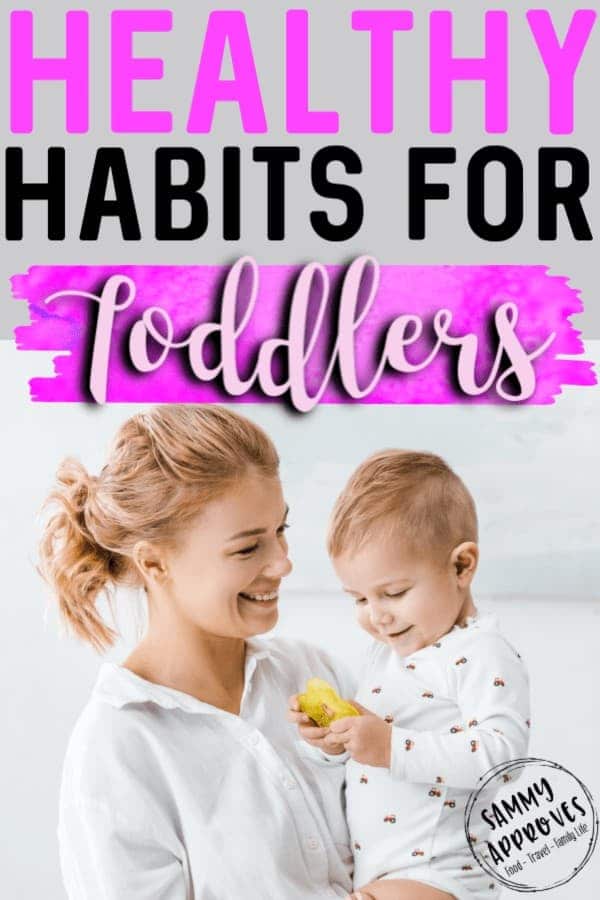
Toddlers may not be old enough to make goals or have chores, but there are simple things they can get into the habit of doing.
- Hugs not hitting– If you’re toddler has a habit of hitting make sure to redirect them. Firmly tell them no hit and give them something else to do. Be gentle or give hugs.
Redirecting is a great positive parenting strategy that can help their social well being when they are ready to have a play date or go to preschool. - Holding Hands– Get your toddler in the habit of holding hands when you are in public or in a dangerous area like the parking lot.
- Washing Hands– Get a stepping stool and teach your toddler to wash their hands by themselves or with help. They will start doing it themselves eventually because you started them on this healthy habit.
- Comforting Your Toddler– If you pick up your toddler when they cry, you are getting them into the habit of coming to you when there’s a problem. Your toddler needs to know they can go to you for their emotional well being.
- Super Simple Chores– Give your toddler one or more super simple chores. Like putting their shoes in a basket when you get home or picking up a few toys. Turn these into a ritual so they get in the habit of doing them daily.
Healthy Habits for Preschoolers
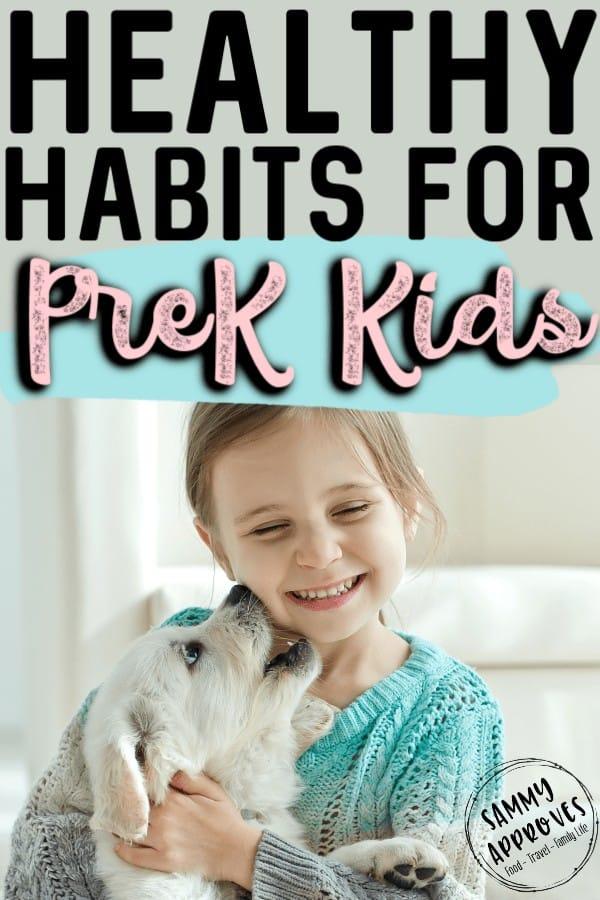
Preschoolers are getting a little older and are able to start keeping track of more.
- Hands to Yourself– Before your preschooler starts school make sure they understand hands to yourself. Get them into the habit of respecting other’s belongings and personal body space.
- Eat Fruits and Veggies– Expose your kids to a variety of food and get them into the habit of eating fruits and veggies for a snack. Kids will eat what you have available for them.
- Getting Outside– Make your backyard or outdoor space accessible to your preschooler. Get in the habit of going outside with them and kicking a ball, playing a game, playing with a pet, or swimming with your preschooler to boost their physical well being.
- Getting Ready– Teach your preschooler what they need to be ready for the day. Get them into a habit of putting their backpack away, getting their clothes out for the next day, and making their bed.
- Brushing Teeth– Your preschooler is old enough now to get in the habit of brushing their teeth daily and nightly unassisted.
- Caring for Pets– Your preschooler is probably old enough to get into the habit of taking care of the family pet. Let them help you with feeding and cleanup. This helps them with their social and emotional wellness as they learn to care for someone else.
Healthy Habits for Students
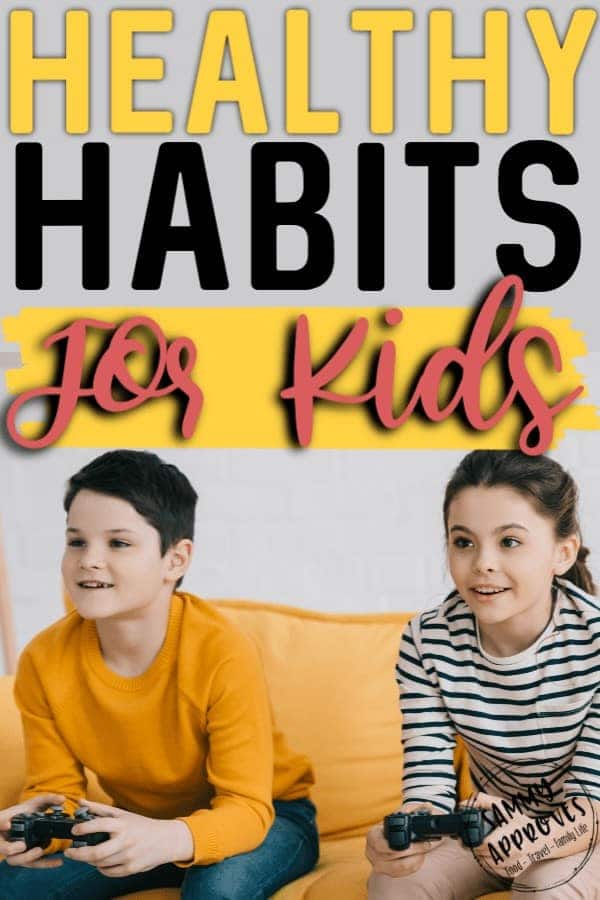
Elementary kids are gaining maturity and can aim for more complex healthy habits!
- Make goals– Have your kids make goals for their school year. This can help in many areas of their well being as they are planning ahead and getting things accomplished.
- Being Punctual– Get your older kids in the habit of being on time and turning in assignments on time at school. There will be lots of opportunities where your kids will need to be on time as an adult. So, it’s good to start practicing now.
- Eat Breakfast- Make sure your kids are getting in the habit of eating a healthy breakfast each morning. This will help their well being at school as they will be in a better mood, more alert, productive, and ready to learn.
- Saving Money– At this age your kids should have a set of chores or responsibilities. Create opportunities for your kids to earn and save money. This sets them up for economical well being later in life when they will need to save for a car or a home.
- Monitoring Screen Time– Your older kids can learn how to monitor their own screen time. Give them a timer or app that shows them how much screen time they use per day. Help them set goals to make a healthy screen time limit per day.
- Internet Safety– Young kids have increasing access to electronics and the internet. Make sure your kids are aware of internet safety skills. Help them know what to watch for and what to do if they encounter something bad online.
How do you help your kids develop healthy habits at home? Do your kids have any bad habits you are trying to break? Tell me about it in the comments below!

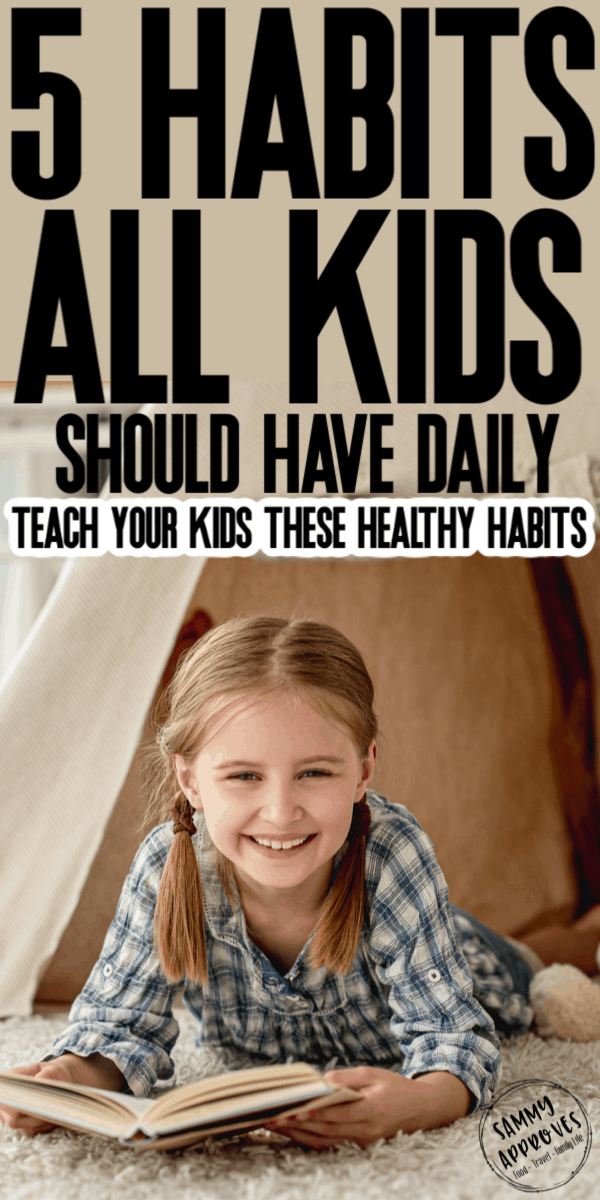
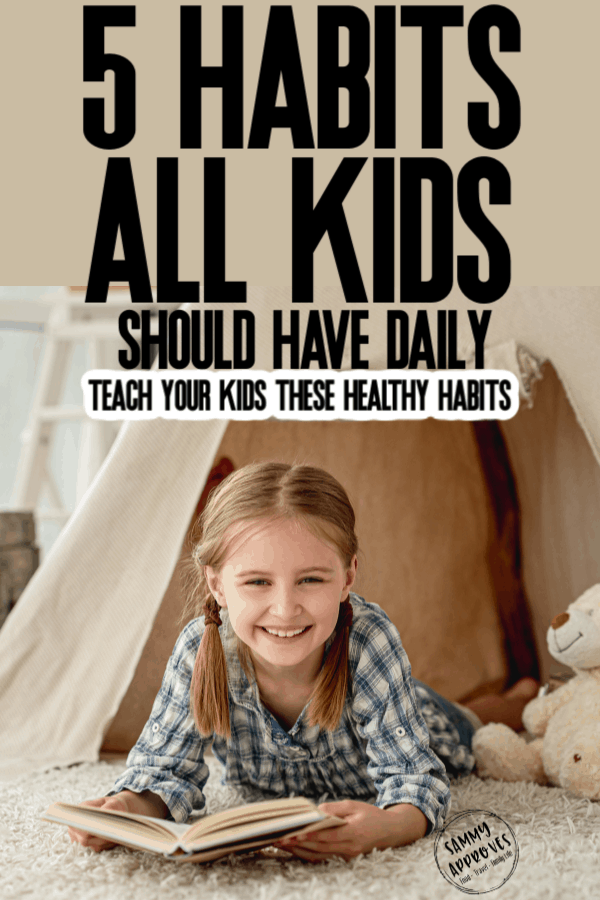


Marko @ parentsupporthub.com
As a parent, you can lead by example and teach your children the value of self-care. Prioritize exercise, fitness, and healthy habits in your life and your child will observe the trend and follow along. It’s recommended that school-aged children are physically active for at least one hour per day.
There will always be rainy (or snowy) days where it’s not possible to play outside. But that shouldn’t limit your energetic activities! Allow it to encourage you to enjoy the good weather. Visit your local community center to go swimming (using both indoor and outdoor pools, plus water slides!). Find an ice skating or roller skating rink. Play mini golf. Challenge each other in laser tag. Take a family bike ride. Play Frisbee golf. Go canoeing or kayaking. Play basketball, baseball, volleyball, football, or soccer in your backyard or basement. Rent a kid’s exercise video from your local library. Wash the car together. Plant a garden together (which involves work to plant, water, and harvest, thus it involves long-term exercise!). Visit the playground (or maybe try a different playground every month). Have a dance party.